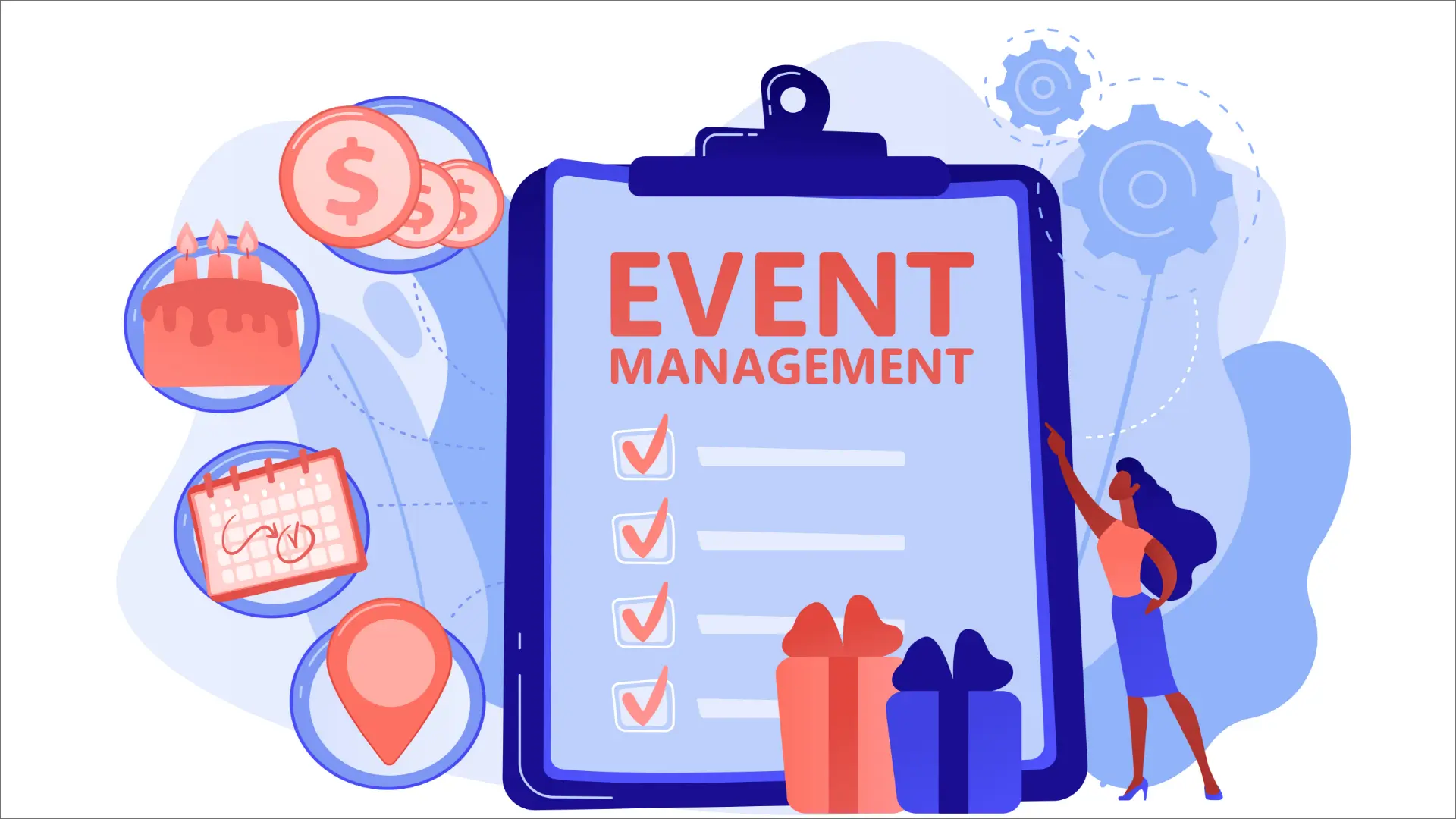The Ultimate Event Planning Checklist : From Concept to Clean-Up
A successful event requires more than just time and money. Whether it’s a corporate gathering, a wedding, or a community celebration, requires meticulous organization and attention to detail. You need to invest your energy and think outside the box to make the event a success.
In this article, we will give you a comprehensive event planning checklist that covers every stage, from the initial concept to the aftermath. Let’s get started, shall we?
Event Planning Checklist
Here are the important points of the event planning checklist :
1. Define Your Event’s Objective and Concept
Well, you can start by clearly defining the purpose and objectives of your event. This is where you map out the kind of audience you are targeting before you can even plan. Think about whether you want to do a formal or informal gathering, a fundraiser, a networking opportunity, or a celebration and the likes
The concept, on the other hand, embodies your event’s unique identity, theme, and ambiance. It shapes everything from venue selection to décor, catering, and guest experience.
A clear definition of these aspects lays a solid groundwork, enabling meticulous planning, cohesive execution, and a memorable event that resonates with attendees long after its conclusion.
2. Set a Realistic Budget for Your Event
Budgeting is another essential component that will break or make your event irrespective of the type and size of the event. As a rule of thumb, your budget ought to cover all aspects of the event, including venue rental, catering, decorations, entertainment, marketing, and unforeseen expenses.
With a realistic budget, you ensure financial feasibility, prevent overspending, and foster efficient resource allocation.
Of course, you can throw in numbers without taking time to research, including doing vendor negotiations, and contingency planning for unforeseen expenses.
The bottom line though is that a well-defined budget acts as a guiding framework, enabling you to prioritize expenditures, maintain financial discipline, and achieve the desired event objectives within set financial boundaries.
3. Send Invitations to Target Attendees
Sending invitations to target attendees ensures successful event turnout and engagement. A well-executed invitation strategy establishes the event tone, builds anticipation, and enhances the overall attendee experience.
This will serve as a roadmap to maximize event visibility, participation, and impact.
Traditionally, sending invitations involved a lot of paperwork and often proved expensive and inefficient. Fortunately, there is tech now that is making things easier. You just need to set up a nice event registration page, and then entice potential attendees to sign up.
You don’t need to create a registration form from scratch. You can simply find a suitable pre-built online registration form that gives you the ability to customize its attributes and deliver the right experience to your clients irrespective of the type of your event.
This saves you time, energy, and resources you would use to brand and customize your event landing pages. It will certainly impact positively on aspects like event turnout, attendee satisfaction, and ultimately, the event’s success.
4. Create a Detailed Timeline for your Event
A detailed timeline encapsulates the entirety of the event and acts as a roadmap that guides all preparatory phases and execution. You should thus develop a comprehensive timeline outlining all the tasks and deadlines leading up to the event day. Include tasks such as securing the venue, sending invitations, arranging vendors, and planning the program.
Make sure you also assign specific responsibilities to individuals or teams and ensure regular check-ins to track progress and address any issues promptly. This detailed timeline optimizes efficiency, aids in resource allocation, minimizes errors, and fosters seamless coordination among the involved parties.
5. Select the Perfect Venue and Vendors
The choice of your venue is also up there with key factors you should prioritize as you plan your event. You should ideally choose a venue that aligns with the event’s theme, capacity requirements, and location accessibility. Consider factors like parking, acoustics, and technical capabilities. Research and select reliable vendors for catering, audio-visual equipment, decorations, and any other services required.
Make sure you visit the proposed venue, review contracts carefully, and communicate your expectations clearly to avoid misalignments. Remember, the venue sets the ambiance and caters to logistical needs, while the right vendors elevate your event experience. This paves the way for a memorable and flawless event for both you and your attendees.
6. Execute the Plan and Follow-Up for Feedback
Execution and follow-ups are equally important and should be given deserved attention. Ensure all logistical arrangements are in place and conduct a final walkthrough of the venue to confirm everything is set up according to plan. Coordinate with vendors, volunteers, and staff members to manage the flow of activities smoothly. Have a designated point of contact for troubleshooting any last-minute issues.
Once the event is over, follow up and collect feedback from attendees through surveys or direct communication to evaluate the event’s success and gather insights for future improvements. Organize a systematic clean-up process to restore the venue to its original state. Ensure all rented items are returned, and any agreements with vendors are fulfilled promptly.
Wrapping up
Successful event planning requires a strategic approach, attention to detail, and effective coordination among all involved parties. Starting early and having a comprehensive event checklist will certainly help you nail it. That said, always remember to adapt and be flexible, as unexpected challenges may arise during the process. And, don’t be afraid to tap into tech to make your work easier.
Read More: Why Should Your Business Use Performance Planner?
